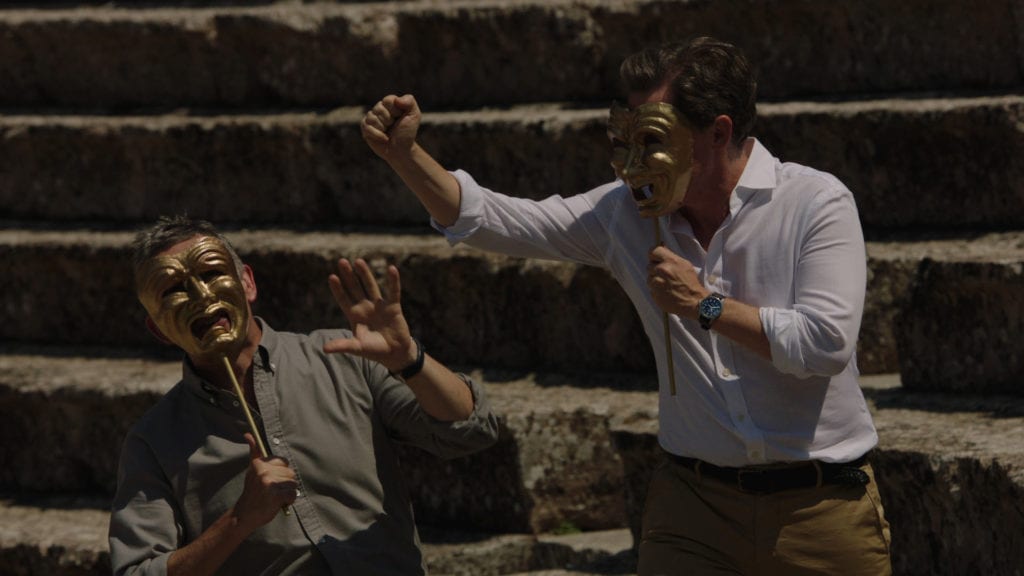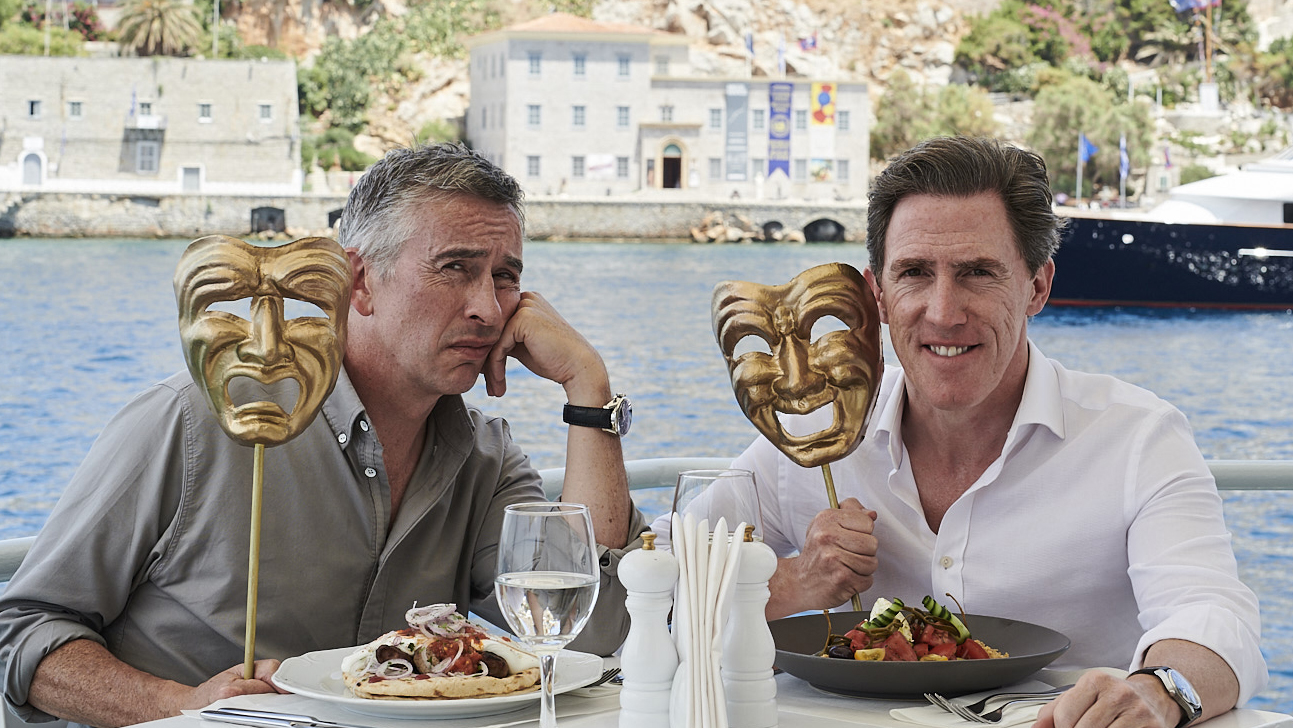Steve Coogan and Rob Brydon’s fourth and final installment in ‘The Trip’ series sends them off with a somber note.

Veterans of the English comedy scene, Steve Coogan, best known for his portrayal Alan Partridge, and Rob Brydon, known widely for his role as Uncle Bryn in hit series Gavin and Stacey, work within a style of comedic performance which would now be considered old-fashioned. Without the aid of overtly-sexualised jokes, the ease of modern satire or simple physical humour, Coogan and Brydon have to work fairly hard to make their word-play, impressions and self-deprecation effective on contemporary audiences. The brilliance of The Trip To Greece and The Trip series in general, is that they know their brand of comedy is dying.
Both comics are well-read, literary men. Subsequently the four installments in The Trip series have the pair tracing the footsteps of poets and writers in whatever country they are touring. The Trip To Greece follows the path of Homer’s epic The Odyssey, the previous films/series exploring the English Romantic poets and Don Quixote in Spain.
The references to classic literature are expertly woven into the film by director Michael Winterbottom, interspersed with Brydon and Coogan’s discussions over top quality cuisine and stunning landscape shots. This blend of heady subjects and rich poetry with the childish play of the two comedians is what lends the film its weight. Both Coogan and Brydon often talk of their frustration at never being taken seriously, whilst also acknowledging the gifts they have been given through their work in comedy.

This idea of the tragic clown is most fully explored in The Trip To Greece over the previous films, especially in Steve Coogan’s character. Coogan has explored many avenues over his career, writing and producing 2013’s Philomena and starring in 2002’s 24-Hour Party People. He has rallied against the British tabloid media and was a key figure in the News International phone hacking scandal. Yet, and Coogan discusses this in The Trip series, he has never truly broken away from being merely recognised as Alan Partridge, an awkward, conservative, politically incorrect radio presenter. Whilst Alan Partridge can be considered one of, if not the best comedy character of all time, Coogan’s frustration with what he has created offers us insights into the creative process of successful comedians, and in The Trip To Greece we truly see Coogan humanised as a man trapped by his own success. Most writers and creatives will be able to sympathise with Coogan’s character, who is only a lightly fictionalised version of himself.
The light hearted humour of the film’s early stages crashes into family tragedy and the comforts and distresses of the ageing process. Both Coogan and Brydon can look at themselves, on what they have done in the past and who they are in the present, with stunning objectivity and clarity. Both men ponder their past and wonder what they will be remembered for, but do so with humility and dignity, leading us to admire them as much as we find them amusing.
The Trip series has been criticised as indulgent and repetitive, like being at a dinner party with two overbearing guests. The Trip To Greece puts these criticisms to shame and highlights the true power of Coogan and Brydon’s writing and performing abilities. In a time when comedy can be based on cheap, easy jokes and production, The Trip brings the weight of the world and the melancholy of ageing into entertainment, yet never becomes too sentimental or sappy. The film encourages writers to keep writing when their fingers become cramped with wear, performers to keep striving to stay true to themselves when they are pigeon-holed, people to keep living when it seems walls are being built around them. Fitting for this year.
Subscribe to FIB’s Weekly Alchemy Report for your weekly dose of music, fashion and pop culture news!






